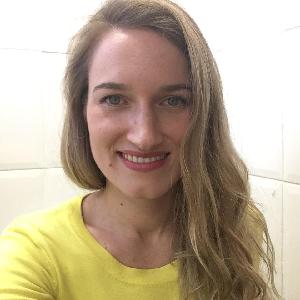Dr Hannah Copley


I am a poet, non-fiction writer, editor and critic, and I have been a member of the creative writing lecturing team at the University of Westminster since January 2019.
After completing my BA in English and History and my MA in English Literature, I undertook my doctoral studies in the School of English at the University of Leeds. During my PhD I worked as an Editorial Assistant at the international quarterly, Stand Magazine, and took on the editorship of the long-running poetry magazine, Poetry and Audience. Alongside this involvement in editing creative work, I also began to publish and perform my own poetry.
After my PhD I started as Teaching Fellow in Modern and Contemporary Literature in the School of English at Leeds. After two years I took a break from academia to start a family, work in small press publishing, and develop my own writing, before joining Birkbeck College, University of London as an Associate Lecturer in Creative Writing in 2018. I joined the creative writing team at the University of Westminster in January 2019 and I am now course leader of the MA in Professional Writing and Professional Writing with Extended Work Placement.
Alongside teaching I continue to write and edit. I am an editor at Stand magazine, and my poetry and prose is published internationally in magazines, journals and anthologies, including POETRY, Blackbox Manifold, The London Magazine, Bath Magg, Under the Radar, Strix, Into the Void, Poetry Birmingham Literary Journal, and Stand. I have produced original poems for anthologies and projects including the 2023 'Anne-thology - Poems Re-Presenting Anne Shakespeare'.
In 2018 I won the York Literature Festival Poetry Prize for the poem 'Haworth, 1855' and in 2019 I won the Newcastle Poetry Prize for the poem 'Juice'. I perform at literary festivals and events around the country, and organise poetry events at the University of Westminster.
My first poetry collection, Speculum, was published by Broken Sleep Books in 2021. My second collection, Lapwing (2024), is published by Pavilion Poetry. It was a Poetry Book Society Summer 2024 Recommendation, and was awarded 2nd Prize in the 2024 Laurel Prize. It has been shortlisted for the 2024 T.S. Eliot Award.
My PhD, which was funded by an AHRC block grant, was entitled The Promise and Burden of History: The Post-War poetics of Jon Silkin, Geoffrey Hill, and Tony Harrison. It drew on archival material and critical and creative writing to explore the relationship of Silkin, Hill and Harrison to the Holocaust, the Second World War, and the dropping of the A-Bomb, and examined how the creative process might be affected by the witnessing of atrocity. Taking up a strand of this study, after completing my PhD I went on to explore the legacy of First World War poets such as Isaac Rosenberg on the work and style of post WW2 poets. I remain interested in the creative legacy of war poetry on contemporary writing, and continue to research and publish on this subject.
Right now, I am interested in how best to make use of historical records and archival material in poetry and how poetry and creative writing can offer disruptive models of political, social and environmental activism. My current creative interests include the global history of pregnancy, representations of motherhood and pregnancy, depicting miscarriage and abortion in art and poetry, and medicine and the female body, long poems, contemporary eco-poetry, writing the non-human and environmental and social justice in writing.
My first poetry collection, Speculum, engaged with archival material and historical records to explore the hidden lives and stories behind scientific progress. It navigated the personal, the historical and the political in an attempt to create an intersectional and activist poetry text. I am interested in how poetry and creative writing might be able to write back to history and be an alternative archive of the body and experience.
My second collection, Lapwing, brings together etymology and ornithology to explore climate change, addiction and dissemblance, and environmental and personal grief. It is concerned with migration, habitat loss, representations and subjectivities of the non human, and how we write about grief.